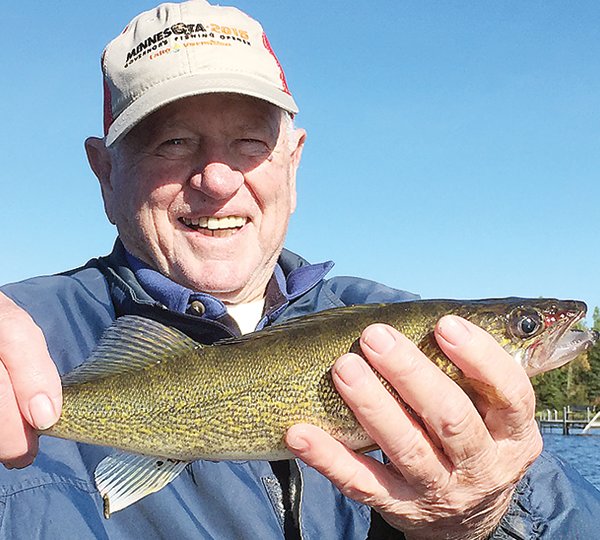Support the Timberjay by making a donation.
Four walleye limit appears dead for another year
REGIONAL— It appears anglers will be able to continue to keep up to six walleyes on most Minnesota lakes, at least for another year. A bill that would have reduced the statewide limit to four …
This item is available in full to subscribers.
Attention subscribers
To continue reading, you will need to either log in to your subscriber account, or purchase a new subscription.
If you are a current print subscriber, you can set up a free website account and connect your subscription to it by clicking here.
If you are a digital subscriber with an active, online-only subscription then you already have an account here. Just reset your password if you've not yet logged in to your account on this new site.
Otherwise, click here to view your options for subscribing.
Please log in to continue |
Four walleye limit appears dead for another year
REGIONAL— It appears anglers will be able to continue to keep up to six walleyes on most Minnesota lakes, at least for another year. A bill that would have reduced the statewide limit to four walleye appears to have hit a roadblock in the Minnesota Senate, which had been advancing a provision authored by Rep. Carrie Ruud, R-Breezy Point.
The effort to reduce the walleye limit has been in play at the Capitol for the past few years, without ever reaching the goal line. This time around, it appears that intra-party politics may have played a role in its defeat. Rep. Rob Ecklund, DFL-International Falls, said the measure appears to have been a factor in the recent decision by Seventh District Republicans to endorse Sen. Justin Eichorn, of Grand Rapids, over Ruud. Both senators ended up in the same district in the wake of redistricting. Eichorn, who had been an early co-author of Ruud’s walleye limit revision, abruptly withdrew his support shortly after the new district maps were released, an apparent play for support from those who opposed the change.
The proposed change, which has the quiet backing of the Department of Natural Resources, has faced some opposition from both anglers and resort owners on lakes where the six-walleye limit is still in effect. Virtually all of the state’s ten most popular walleye lakes, including Lake Vermilion, have a four-walleye special regulation already in effect.
The proposed reduction to a limit of four statewide may be dead for this year, but Ecklund said he expects it will reintroduced next year. “I think the time has come,” he said. Ecklund has introduced the measure in the House in previous years and said he plans to do so again if he’s re-elected in November. “We’ll have to develop a strategy to get it done,” he said.
The House never took up the measure this year, said Ecklund, because he and other supporters had assumed that the Senate would approve the change, which could have then been rolled into the joint natural resources omnibus bill at the end of session.
While Ecklund said he’s heard from some constituents opposed to the change, he said he heard the same fears expressed by Rainy Lake resort owners when the limit was trimmed to four there several years ago. “We were told the world was going to end, but it didn’t happen,” said Ecklund.
With modern electronics, Ecklund said anglers have too big of an advantage and that limiting the harvest is the only way to maintain healthy fisheries.






